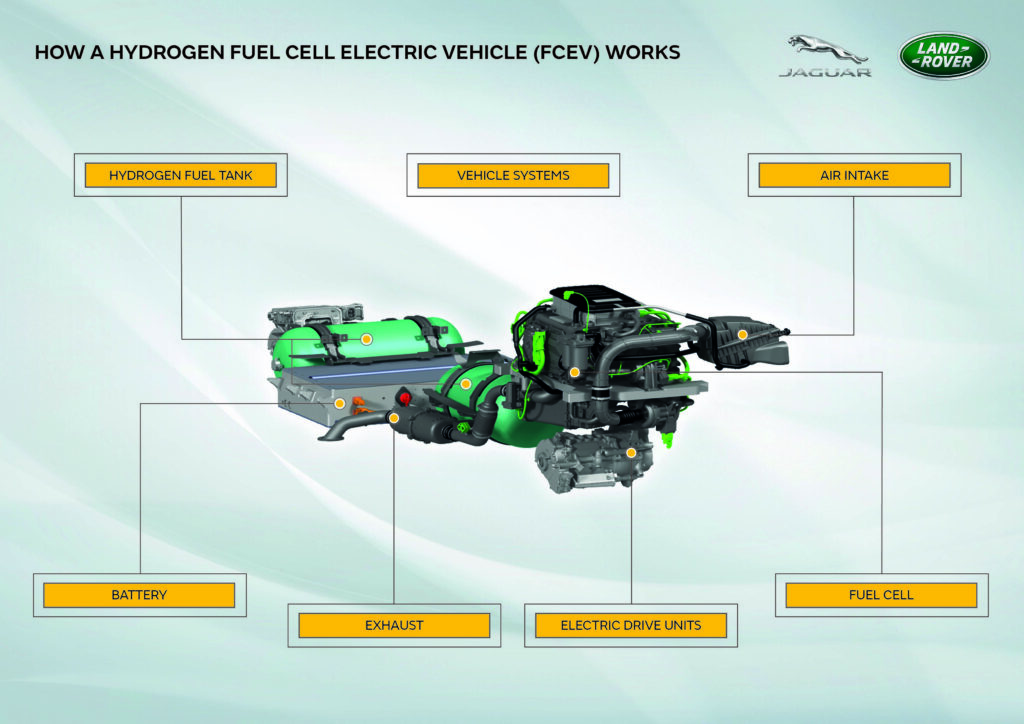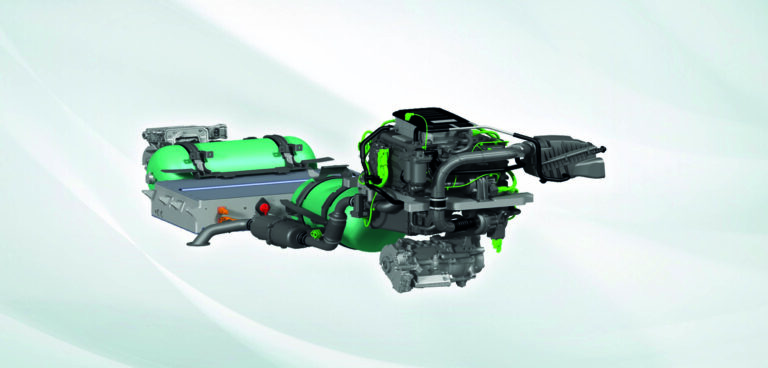Jaguar Land Rover is to develop a prototype hydrogen fuel cell electric vehicle (FCEV) based on the company’s latest Land Rover Defender, with testing set to start this year.
The OEM is aiming to achieve zero tailpipe emissions by 2036, alongside net zero carbon emissions by 2039 across its supply chain, products and operations, and the Defender FCEV concept falls in line with the company’s recently announced Reimagine strategy.
With the number of FCEVs on the road nearly doubling since 2018, and hydrogen refueling stations increasing by more than 20%, analysts predict that by 2030 hydrogen-powered FCEVs could account for 10 million vehicles on the road with 10,000 refueling stations becoming available worldwide.
Funded partly by the UK government-backed Advanced Propulsion Centre, JLR’s advanced engineering project, codenamed Project Zeus, includes R&D partners such as Delta Motorsport, AVL, Marelli Automotive Systems and the UK Battery Industrialisation Centre (UKBIC).
JLR hopes the project will enable its engineers to understand how to optimize a hydrogen powertrain so it can deliver the vehicle performance and capability that the brand’s customers expect in the areas of range, refueling, towing and off-road ability.
The company is planning to begin testing the FCEV Defender in the later part of 2021 on UK roads and trails to verify the zero-emission vehicle’s off-road capability and fuel consumption.
“We know hydrogen has a role to play in the future powertrain mix across the whole transport industry, and alongside battery electric vehicles it offers another zero-tailpipe emission solution for the specific capabilities and requirements of Jaguar Land Rover’s world-class line-up of vehicles,” commented Ralph Clague, head of hydrogen and fuel cells, JLR. “The work done alongside our partners in Project Zeus will help us on our journey to become a net zero carbon business by 2039, as we prepare for the next generation of zero tailpipe emissions vehicles.”



